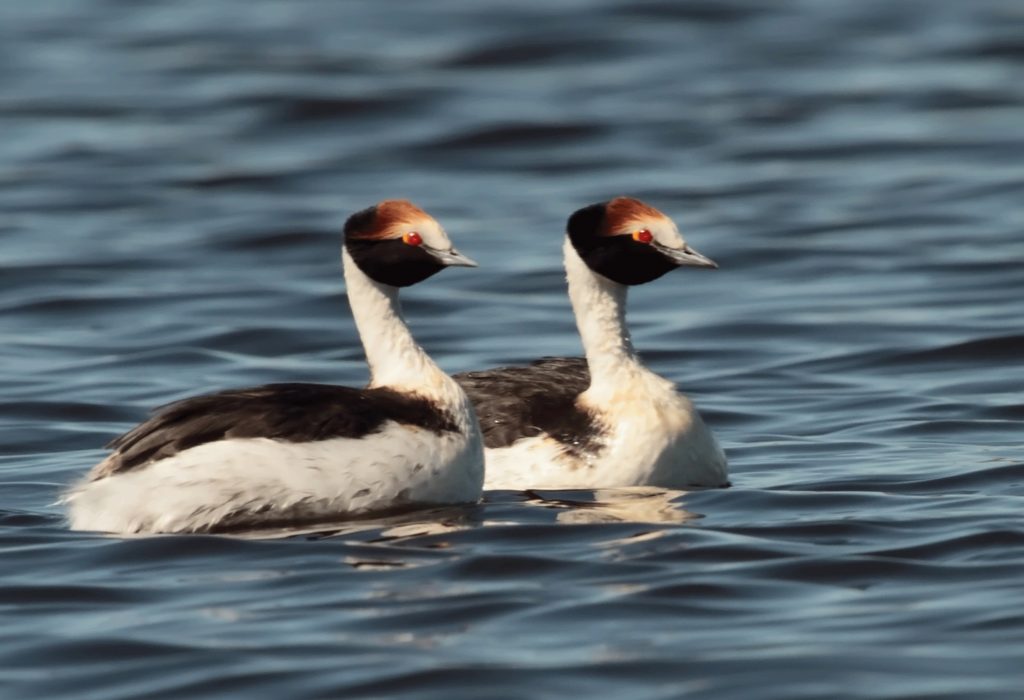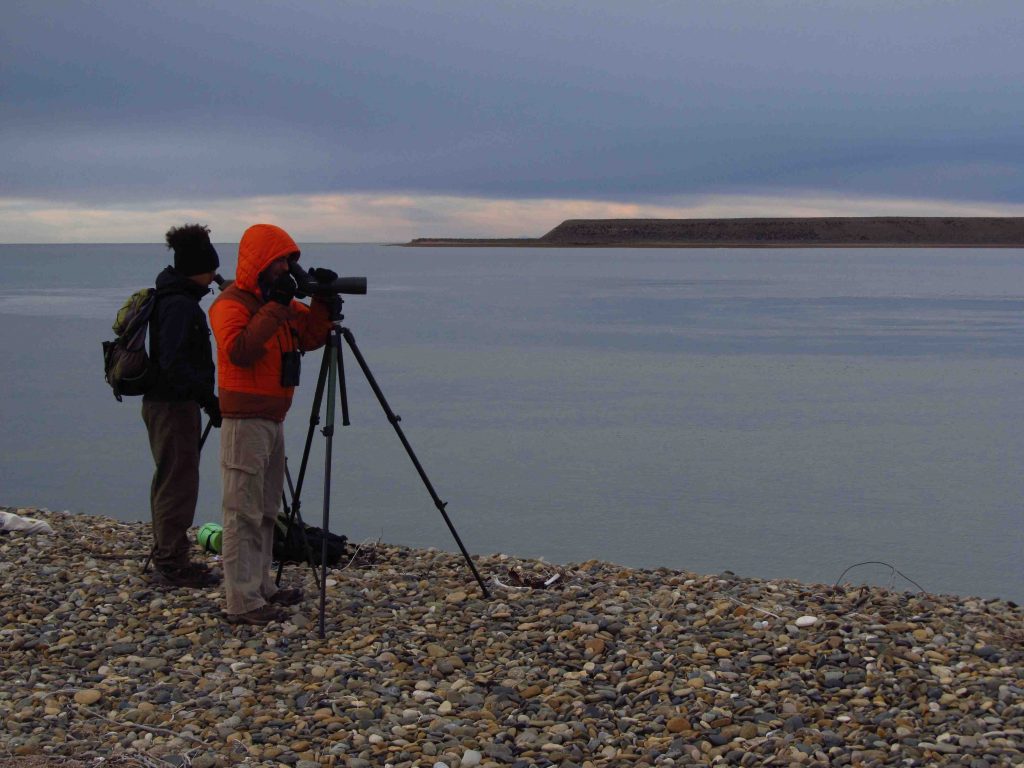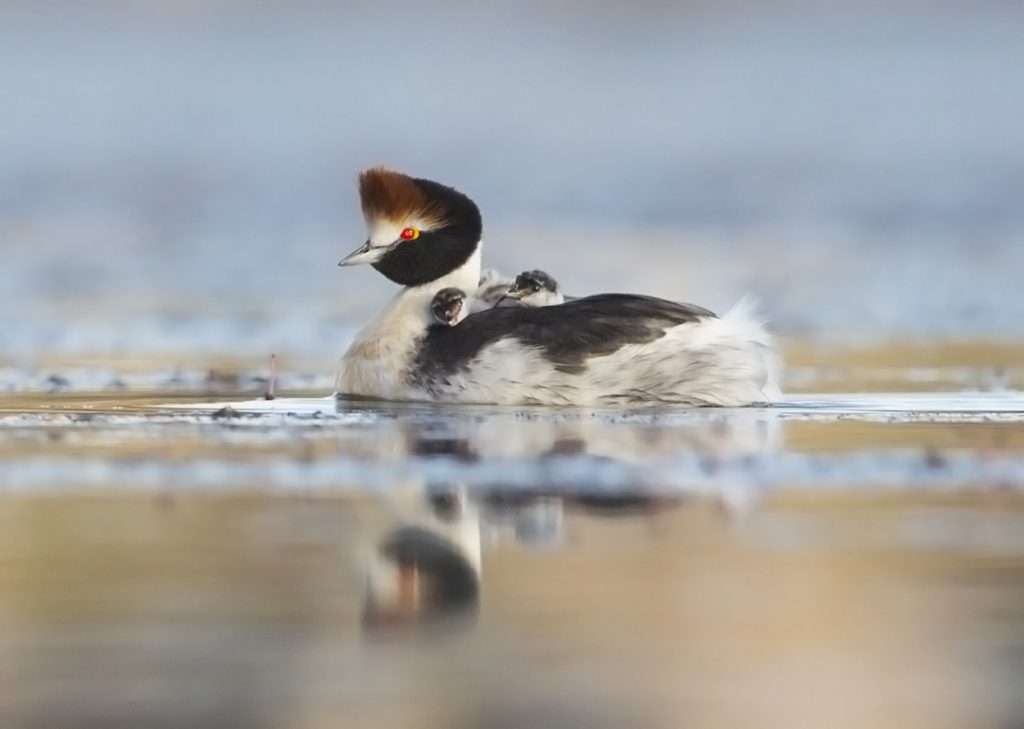The EDGE of Existence Erasmus Darwin Barlow Expedition (EDBE) funds two places for UK based early career conservationists to gain valuable experience and aid in the conservation of an endangered and evolutionary distinct species. It allows for young aspiring conservationists to join a 2 to 3 week expedition led by ZSL conservationists and participate in conservation research, logistical planning, budget management and community engagement. We prioritise applicants that would ordinarily not be in a position to join or organise such an expedition, aiming to open new doors to promising young conservationists
The 2018 EDGE EDBE expedition will be to Argentina to support the work of the local Hooded Grebe Project (Proyecto Macá Tobiano). The Hooded Grebe (Podiceps gallardoi) is a stunning, crimson eyed waterbird with an incredible head-bobbing mating dance. The species is endemic to Southern Pantagonia and is list as Critically Endangered by the IUCN. The Hooded Grebe was only discovered in 1974 and since then the population has dropped by as much as 95% in some areas.

Climate change is dramatically impacting these birds. The high elevation lakes, where they breed in the Argentinian summer, are drying up as less and less snow falls during the winter. The grebes feed on amphipods (small crustaceans) that live in the lakes and use the milfoil plant (Myriophillum sp.) which grows in the lakes to make their nests, so climate change is causing rapid declines in a key food and breeding resource.
Hooded Grebes also have very low reproductive rates, producing only 1 chick in each breeding season. As a result, they are highly susceptible to predation by the invasive American mink and Kelp Gulls that which eat the eggs and the juveniles. The mink can kill large numbers of adults in a day, potentially wiping out entire local populations.
In addition, introduced salmonids compete for the grebe’s food and change the structure of the lakes where Hooded Grebes live. These threats are exacerbated by the altered weather conditions caused by climate change.
Conservation projects are vital to save this species from extinction. The EDGE of Existence programme supported the work of Kini Roesler (EDGE fellow from 2015 to 2017) to research and implement key conservation actions such as mink control. Since 2014 the Hooded Grebes reproductive success rate seems to be increasing.

However, conservation efforts to protect this species remains essential as the population is still critically low. The 2018 EDBE expedition will contribute essential information for the ongoing conservation of this species. To date, we know nothing about the migratory route of the grebe. The birds travel down from plateaus to spend the winter in the coastal estuaries, but we have very little knowledge of where they go. Huge hydrodams are due to be built in this landscape over the next few years and we cannot effectively mitigate the impact of these dams if we do not know which parts of the landscape are important for the birds to migrate. We will be deploying solar powered gps loggers to obtain this information for the very first time.

The two young conservationists that will assist with this expedition are Thomas Smith and Sarah Gluszek. Tom has recently completed his masters in Conservation Biology from the University of Kent. His research interests are in species conservation prioritisation tools, which help scientists decide where best to use their limited funds to conserve species, as well as the role of alternative livelihood initiatives aiding in conservation. Sarah’s background is in Law and she has worked in conservation policy in several countries, including Ecuador, South Africa and Malta. Having completed her MSc in Conservation Science from Imperial College London, she is keen to experience scientific research in the field and is looking forward to helping conserve the amazing Hooded Grebe and to visit the beautiful Patagonian region.
Look out for future posts on the expedition and explore our website to find out more about the Hooded Grebe and Kini’s EDGE fellowship.
More information on the Hooded Grebe can be found on the IUCN website here, and the EDGE webpage here.